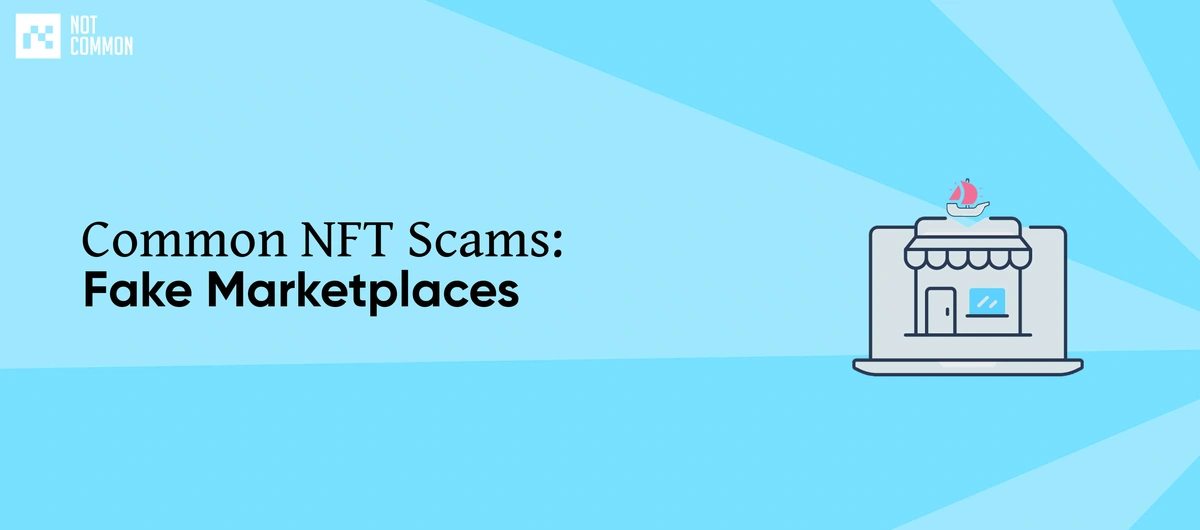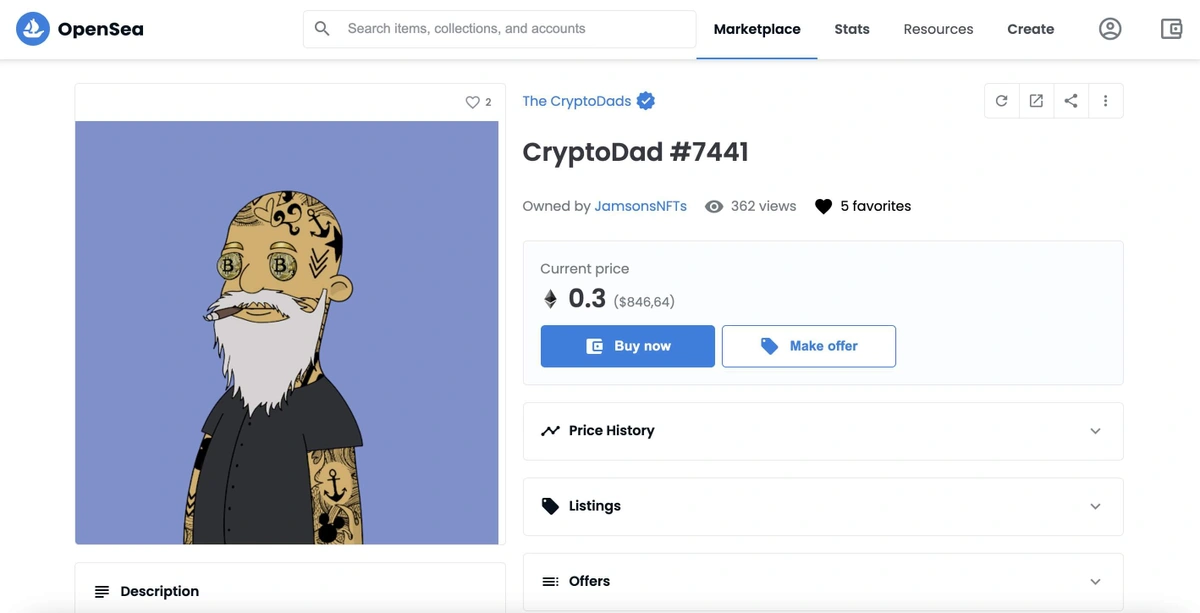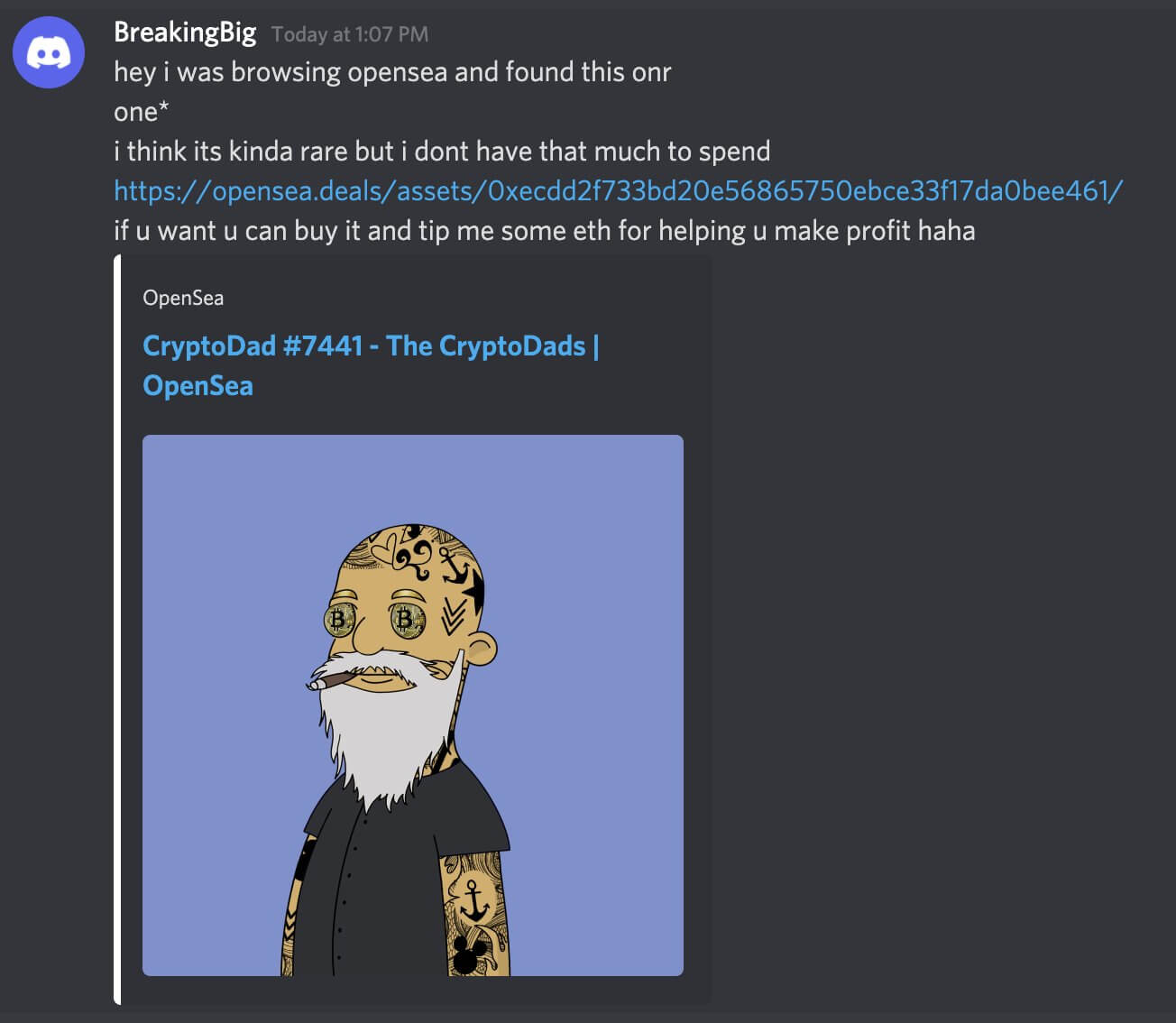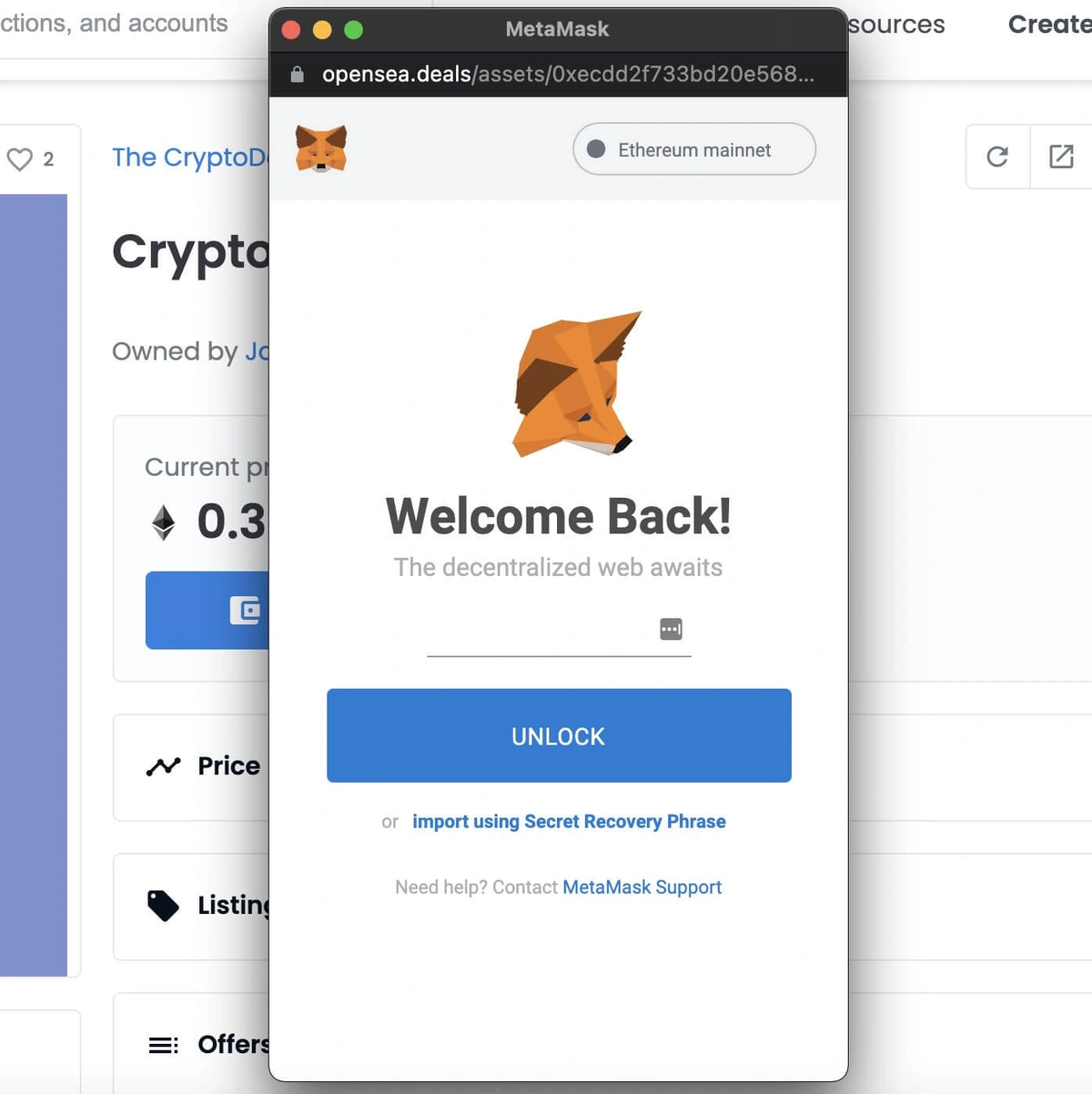New investment markets provide lucrative opportunities for investors and traders, but scammers, who use these opportunities to steal investors of their money, seem to benefit from it too. Non-fungible tokens (NFTs) had a significant economic impact in 2021 as capital poured into the space in historic amounts. However, as the hype around NFTs continues to grow, so does the number of scams in this emerging market.
Fast-paced NFT trading provides the ideal setting for cybercriminals to conduct fraudulent activities successfully. Scammers continuously infiltrate the NFT market and community by using different scams and phishing techniques. Scammers will pull off all kinds of NFT scams to mislead or trick NFT collectors into exposing their NFT wallet’s secret phrase. Once NFT scammers can access an NFT wallet's secret phrase or "seed phrase," they drain the NFT wallets by stealing all available NFTs in the collector’s wallet.
NFT scammers use advanced NFT scams to steal the assets of NFT collectors and investors. Such scammers use techniques that are often too complex, even for NFT experts. Before investing in NFTs, you should familiarize yourself with common NFT scams, as new scams constantly overwhelm the NFT community. Knowing about current and emerging NFT scams is the most excellent defense, which makes it crucial to update yourself on common tactics scammers use.
NFT scams are like cryptocurrency frauds common during extreme market gains for bitcoin and other cryptocurrencies. Sadly, many individuals became victims of these scams, losing almost $14 billion to cryptocurrency scams in 2021.
Scammers are now using fake NFT marketplaces as part of a new social engineering scheme to target the NFT community. In this article, we will understand how fake NFT marketplaces work and what you can do to avoid such scams.
What are Fake NFT Marketplaces?
Scammers often construct fake NFT marketplaces by copying well-known NFT platforms like OpenSea. These fake marketplaces may mislead even an expert NFT seller, which sometimes appears nearly like the originals. Fake marketplaces deceive users into paying out a lot of money for a fake piece of art that has no actual value.
How can you prevent falling for this complex NFT scam?
First and foremost, it's essential to investigate the NFT you want to buy. Scammers often list NFTs that sell for hundreds of thousands of dollars, for a fraction of the original amount on scam websites. For instance, Ape #1009, an NFT from the Bored Ape Yacht Club collection, is available on Opensea for 98 ETH. However, a scammer may offer a clone of this NFT at a much lesser price, luring buyers who want to buy an Ape NFT without spending a fortune.
Fake NFT marketplace listing a fake NFT. (Source: Twitter)
If you are unaware of an NFT's value, you risk thinking you are getting a great bargain when paying several hundred dollars on a false piece of art.
Additionally, be aware that fake NFT websites will welcome illegal sellers. Major sellers on official marketplaces will have a blue verification checkmark next to their usernames, like those on Instagram and Twitter, while fake marketplaces may lack such verification badges.
Therefore, if you're considering purchasing a more costly NFT, be sure the seller is reputable first. Additionally, you may look for the characteristics of the NFT that interests you. Only genuine NFTs will have a property list for review, whereas scams do not.
Finally, double-check the NFT's contract address to ensure you're dealing with the right person. This will reveal the address of the mint. While a genuine NFT store will display the actual minting address, a fake one may have an inaccurate minting address. You can visit the NFT's developers' official website to verify that the contract addresses are correct.
How Does Fake NFT Marketplace Scam work?
Professional NFT scammers will create fake versions of well-known NFT websites and marketplaces to deceive customers into exposing their account information. Fake marketplaces like the one in the picture above are so detailed that even expert NFT owners may find it hard to distinguish between a genuine and fake marketplace.
These social engineering scams have the potential to cost a victim thousands of dollars on fake digital artwork, rendering it unusable on the NFT market.
You may wonder how scammers achieve sales on fake NFT platforms or marketplaces. Here is how they do it:
After scammers create a fake NFT marketplace or website, they promote it across the NFT community, where investors and collectors connect. For instance, scammers may share links to the fake marketplace in the NFT Twitter community or some NFT project's discord server, which users they target.
A scammer was promoting a fake NFT marketplace in a discord community. (Source: Twitter)
These scammers often create fake hype of an NFT deal or artwork in a discord or Twitter community. For instance, in this case, the scammer uses a deceptive domain that ends with “.deal” instead of “.io” to redirect users to fake marketplaces. As other NFT collectors rush to check the NFT artwork, they end up on a fake marketplace instead of the original.
Other methods of creating such fake marketplaces are to either misspell the marketplace’s name in the domain or use Unicode letters in the web domain.
Once the scammers successfully deceive an NFT collector or investor into visiting the fake NFT marketplace, they wait for the NFT trader to connect their NFT wallet (usually a MetaMask account) to the pop-up on the fake marketplace.
Fake MetaMask pop-up prompting users to connect to NFT wallet. (Source: Twitter)
As soon as the NFT collectors connect their NFT wallet to such fake MetaMask pop-ups, they expose their wallet login details to the scammers who use it to drain the collector's wallet of all the NFT assets successfully scam them.
The Takeaway – How to Fake NFT Marketplace Scams?
There's no doubt you can protect yourself against such scams. Double-check the NFT marketplace website's URL before connecting your NFT wallet or making any transactions. Exercise extreme caution always and look out for common red flags.
You shouldn't invest in an NFT project unless you are 100 percent sure about it. Second, research the NFT listing by verifying its mint address. Finally, remember the importance of keeping your NFT wallet’s secret phrase safe. If you are careful, you may avoid such scams without any worries.
Learn about other common NFT scams and new techniques to secure your NFTs by reading more of our articles.



